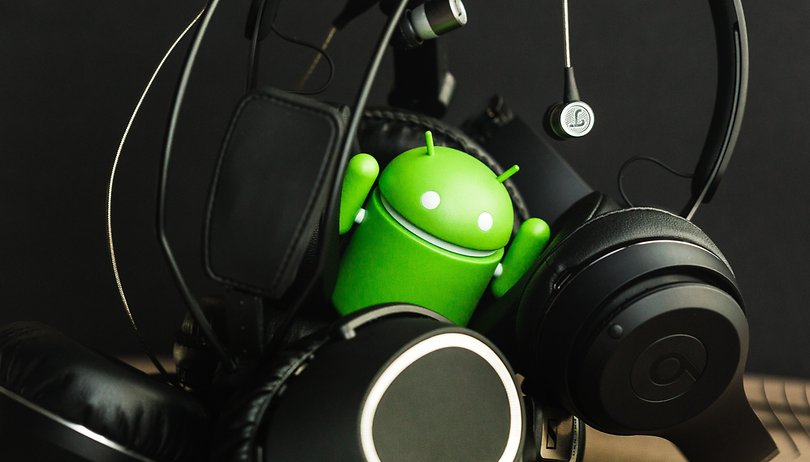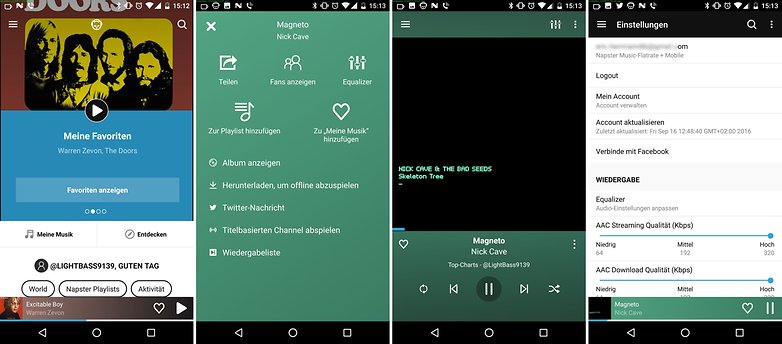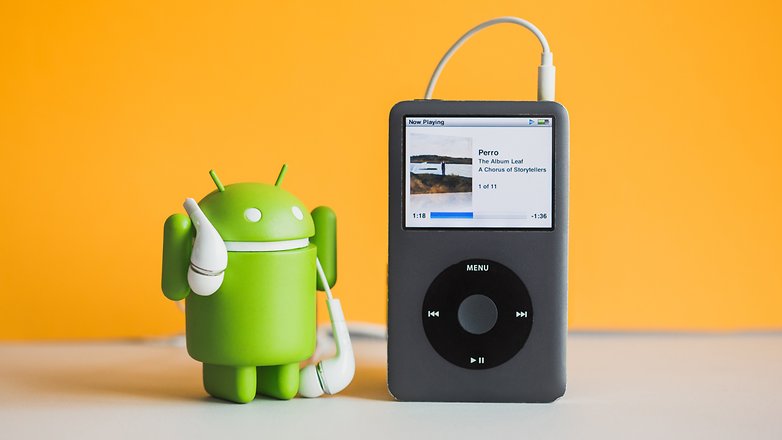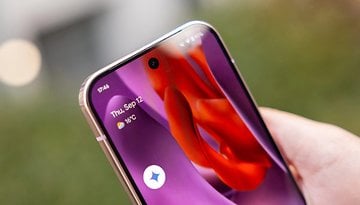The MP3 is finally dead: a look back at a technological revolution


The MP3 format has officially been discontinued by their creators the Fraunhofer-Institut. The audio format, which had been kept on life support for the past years can now finally rest in peace and make way for its successors. We decided to have a look back at the MP3's origins as well as what's in store for the future.
The MPEG-1 Layer III - better known as MP3 (not MPEG3) truly revolutionized how we consumed music in the 90's - and still does to this day. CDs were beginning to appear bulky and cumbersome to use. Cassette tapes had reached their technological plateau and their usage quickly fizzled out. Enter the MP3.
Researchers from Erlangen and Nuremberg in Germany managed to develop a new compression method, which in simple terms meant that they could compress vastly greater amounts of data with comparably little deterioration in quality. While initially developed in 1983, the .MP3 format as we tend to know it today saw the light of day in 1995, after researchers at the Fraunhofer-Institut held a vote to standardize the file extension name from .bit to .mp3. While the mp3 format truly was a revolution, from today's point of view the quality and sound of an MP3 with 128 kbit/s is absolutely terrible.
Now that the deal that Technicolor and the Fraunhofer-Institut had around the MP3 format has ended, so ends the official support for the format. Let's have a quick look back at how it all began.
A file sharer's dream, the music industry's worst nightmare
Towards the end of the 90s, those who had an internet connection had the joy of experiencing the wonders of dial-up internet (think of AOL CDs and that nostalgic modem noise). The speed of a dial-up connection was a mesmerizing 7 Kbps. Every download took an eternity, but every successful download brought an immense feeling of success. As a teenager, I never saw the slow dial-up speeds as an obstacle and continued downloading to my heart's content.
At the time, there were no real laws against file sharing, and the ones that existed were so vague that you always found yourself in a legal grey zone. Queue me downloading Kazaa, Napster and WinMX. A song with MP3 format with 128 Kbps, had a file size of about 4-5 MB - each download took around 5 minutes. File sharers and download programs updated their technology as well. At one point you could simultaneously download a song and play it at the same time. The word streaming hadn't become ubiquitous yet - but the experience was already "similar".

Once downloaded, we saved the songs on our 128 MB MP3 players. They had just enough space to save about two hours worth of music. Basically enough to listen to music on your way to school, during your lunch break and on the way back home. The AAA batteries that powered these MP3 players often didn’t last more than three uses.
And then came iTunes
But at some point, effective (and stricter) laws were introduced, which were accompanied copyright lawyers. Users still wanted to acquire music from the comfort of their own home - especially since internet speeds had vastly improved, allowing one to download a complete album in under ten minutes.
The iTunes Store continued where Napster left off: We were able to download songs again. The novelty here: We could pay for songs legally just like in a record store. It seems like no one else aside from Steve Jobs realized that people would actually pay to download music.

The MP3 was already dead when iTunes appeared
iTunes launched with the MP4 format. The new format compressed files using the AAC codec, which is still the standard today. This is based on new psychoacoustic methods, which are said to be closer to the original. The MP3 format was already considered obsolete at that time, but was still used parallel to the new format.
CDs continued to exist side by side with the MP3 and MP4 formats. CD ripping for personal use was legal - as long as it was for personal use. iTunes kindly facilitated this feature. Numerous tools sprung up, helping you to tag, sort and most importantly convert your CDs into digital files. With today's available codecs for lossy compression, the MP3 landed somewhere in the middle.
If you have a look at the documentation of the open source transcoder FFmpeg, it recommends the audio compression codecs in the following order - starting with the best quality: Opus> Vorbis> = AAC> MP3> = AC3> MP2> WMA. Android devices can natively play Opus, Vorbis, AAC, MP3 as well as the lossless FLAC format.
Only researchers seem to care about the "right" codec at this point
To be quite honest, I'm not too bothered by which codec hides behind the music that I stream. The last CD that I ripped was a CD that I needed for my Italian language course. The 90 minutes worth of content was quickly compressed down to a size of 64 MB. I still use FLAC for my music, as the quality of the compression is still more important to me than the amount of space it will eventually take up.
Streaming services also compress their data streams to reduce their costs. The following list shows you the maximum available quality by provider:
Maximum bitrates available by streaming service
| Spotify | Apple Music | Tidal Hifi | |
| Codec | Vorbis | AAC | FLAC |
| Max. Bitrate | 320 kbit/s | 256 kbit/s | 1411 kbit/s |
So, when was the last time you ripped a CD? Do you notice a difference in quality when you stream music or play it on your phone?




















In the car I listen to mp3, quality is enough for me. But the FLAC standard is absolute fidelity, it is the audiofile's favorite.
Are you able to point out in a blind test which of the file playing is the FLAC version vs 320kbps mp3?
I learned more about audio codecs here than I ever knew. Thanks for that but I really believe MP3 isn't dead yet. You can still get MP3s at the 320 bit rate or maybe even higher in some cases. I am gonna check out getting music in Flac format from now on. Have fun y'all! :-)
FLAC is the way to go! Thanks for the comment!
Good tweet from How To Geek: "The tech press is declaring that MP3 is dead. But it didn't: its patents just expired, which is a good thing. This seems to come from a misunderstanding of a press release, and then others trying to play copycat for clicks."
Guys, are you even serious? The whole article is trying to imply (if not, state) that the mp3 format is dead, spreading false information. It's just the licensing fee that was removed, so the format is now free to use by everybody, which is the best thing it could ever happen to the mp3 format. This should spread/make mp3 even more popular than it ever was! Fraunhoffer, obviously upset like crazy, is trying to make it sound like it's the end of mp3 since they've lost the source of income, not even sure why the press is giving them any importance in this pathetic move. The headlines should be "mp3 is now finally rolalty free" and everybody should cheer up at the news of it.
What kind of 'development' was done on the format, by Fraunhoffer? We're still using the 1993 version (MPEG-1 Audio Layer III) for music. They've released the MPEG-2 and MPEG-2.5 versions, but these are not used for music (due to the limited bitrate and sample rate).
Thanks for pointing that out. I really hope this will mean less constraints and freer circulation, which IMHO would make an enormous favor to the music streaming industry.
I do like the horses' metaphor! I've been there with my 56kbps modem myself, converting CDs I bought, bringing entire albums with me in a time where cassettes where still a thing. So, I guess, a DYI approach is the only thing that will last :-)
And where is google play music ?????????????? I am using it...
Me too :) they have all my mp3s!
This is a test conducted to find out which streaming service "streamed" the best quality. It's by no means conclusive & should not be interpreted as factual data.
It would seem that Google Play is the winner.
Peace ?
Quote;
"The Results
Interpreting these results was not as easy as I expected and at times it is downright shocking!!! Because the numbers are so different it is safe to assume to that these apps all apply their own degree of compression to the music before streaming it. In these images and reports below, higher numbers mean higher quality so it would appear that Google’s Play Music and MOG have the best quality while Beats and Rdio have the worst.
AT&T LTE network in Manhattan
Beats Music 13.2Mb (slightly lower quality than 320kbps MP3 – the loser!)
MOG 24.4Mb (much higher quality than 320kbps MP3)
Play Music 25.1Mb (much higher quality than 320kbps MP3 – the winner!)
Rdio 13.6Mb (slightly lower quality than 320kbps MP3)
Spotify 17.2Mb (higher quality than 320kbps MP3)"
Source - http://www.marcurselli.com/2014/03/03/the-truth-about-music-streaming-services-and-the-ultimate-audio-quality-shootout-test-beats-vs-mog-vs-play-music-by-google-vs-rdio-vs-spotify/
While that looks like a very credible article due to the very credible author and the looking-like scientific approach, the author does not even talk about the audio quality, only about file size. Like, seriously? The file size actually doesn't even matter, when each service uses a different compression codec - he should have compared the sound quality vs the uncompressed original. The article is old enough that most things have changed since then, plus the new actor on the streaming market for hifi music, TIDAL, was left out.
I agree with Francesco V. I do like the article and never actually knew this much about the music I listen to but I want to know what can we do with the MP3 we actually own and in today's standards what is basically the equivalent of a 128kbps MP3 where quality and size remain almost equal if not better in terms of size as I personally still prefer .MP3 for the sheer fact you can easily tag the files itself so the data such as the song name, artist and album (even album art in some cases) is carried across all the devices you use and on top of that the size of each file and the sound. Yes I used Spotify yes I could download to play songs offline but what if there comes a day where I don't want to pay for a subscription or I want to hear certain songs I have that Spotify doesn't have.
Also just quickly on that note you had a poll wondering if we agree that iTunes is the best music platform on the market and I voted and it's a landslide no I personally feel that iTunes in today's market is as comparable against the others to being the Windows Explorer of the music/media market other services such as Spotify and Google Play Music (from the top of my head) are far better other people may not agree with that statement but that's my opinion, anyway I'm looking forward to answers to my questions about the future of .MP3 and thank you for an insightful article.
I was waiting to know "what's in store for the future", as stated in the beginning of the article. So, what? Any idea on what to do with the mp3 we own? Any suggestion on how to get over the loss of the mp3 format? Will Android continue to support it natively or not? Etc.
mp3 was set free, now. Its development and its licensing on the other hand are dead. We'll be able to keep using it like we're able to ride on horseback instead of taking the car. At some point, it'll just stop making sense because cars evolve while hores don't (stick with the metaphor, please). And as soon as Google and the other AOSP contributors decide to cut mp3 support out of the core, some app will certainly pop up to provide you with a real time transcoder that'll enable mp3 playback. So, don't worry.
What development do you mean? What kind of developments were done to the mp3 format in the past decade?
Do you no think that this shows the problem of data storage and which formats will be kept? 30 years ago we us magnetic storage on tape - in 30 years time will Flac or PDF or MP4 still be around.... ?
Peace ?
You don't even know what you're talking about. We made the transition from analogic to digital and that's what it mattered. mp4 is just a container, it can store things encoded with several codecs inside. FLAC will definatelly stay, it's the most versatile AND free lossless format, things only get to troubles when there's any proprietary format involved. There's bigger chances that pdf will be forgotten, but so far it stays strong, pdf's are used/read globally more than anytime in history (due to how easy is to access them directly in the browser now).
In Europe the MP3 is free since 2012, nothing happened, you can use it and still buy mp3
There is no way to recover the "lost" data (compressed). If you want to upgrade your music collection you will have to find or convert from original every tune. This is a problem I you got rid off your CDs etc. It also touches on a wider issue off data storage formats, there is no guarantee that any file formats will remain for any length of time, just look at how we stored data 30 years ago & think which formats will remain for another 30 years..
Peace ?